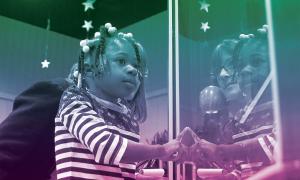student task
Do Something
Community Puzzle Mural
Students create a community puzzle mural, a large-scale artistic depiction, usually displayed in a community space. Puzzle pieces covered in student’s artwork relating to diversity, anti-bias or social justice themes from the central text comprise the mural.
July 13, 2014

